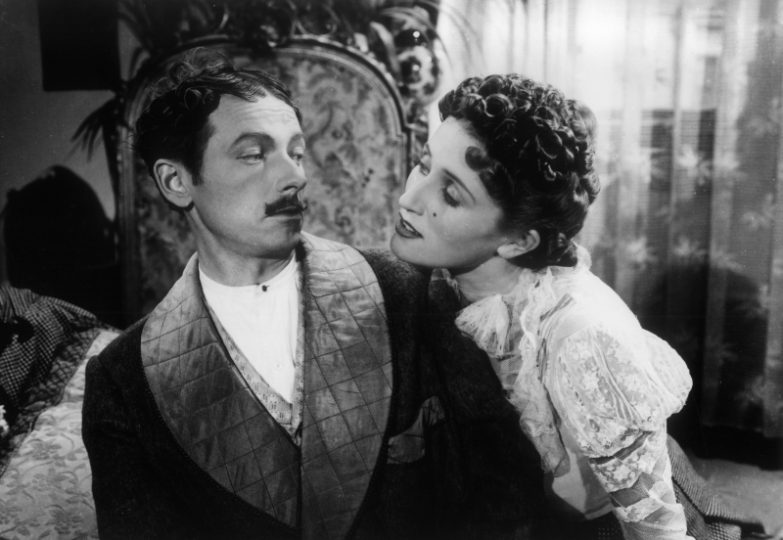Together with his wife, Jiří Pravda is one of the few Czech actors who managed to become successful in Great Britain. Whereas Adina Mandlová, Anny Ondráková, Pavla Vrbenská and Míla Reymonová managed to secure occasional engagements, Jiří Pravda and his wife Hana Bělská, Herbert Lom and Sylva Langová were far more successful and for much longer. This year, we commemorate the hundredth anniversary of the birth of this Czech-British actor.
Jiří Pravda was born Jiří Čvančara in Prague on 19 June 1916 to a drugstore owner. Until the age of six, however, he grew up in Ljubljana. After primary school in Zbraslav, he graduated from an academic high school in Prague. Already as a student, he was part of an amateur theatre group and a member of the drama club Dramatické studio Čin. He began studying medicine at Charles University, but switched to pharmacy after five semesters. After the Nazis shut down all universities, he was arrested by the Gestapo in early 1940 and interrogated for being a former student functionary. He managed to escape during transport to the Buchenwald concentration camp.
He acquired false documents and lived under the name Jiří Pravda during the German Protectorate. His true identity was never discovered. During that time, he became a professional actor. He began his acting career in the Lesík nomadic acting troupe (1940) before joining the Horácké touring theatre in Třebic (1941–1943) and the Kladno Municipal Theatre (1943–1945). After the country’s liberation, theatre director Jan Škoda hired him to work in the Realistické theatre in the Prague district of Smíchov (1945–1948). At this theatre, Jiří Pravda played comedy and conversational roles [e.g., Of Mice and Men, Velbloud chemo jehly (Camel through the Eye of a Needle), The Merry Wives of Windsor, Twelfth Night, Vesnice Mladá (The Young Village) and Bláznivý den (The Crazy Day)].
At that time, Jiří Pravda enjoyed a short stint in Czech film. During 1946–1948, he played in seven films. After a small role in a drama about the occupation, Svátek matek 1945 (Mother’s Day 1945, 1946) directed by K. M. Walló, he played a Gestapo officer in František Čapek’s Muž bez křídel (The Man without Wings, 1946). In 1947, he played a guard in Martin Frič’s comedy Polibek ze stadionu (A Kiss from the Stadium, 1947), an actor in Čáp’s unfinished drama Křižovatka (The Crossroads, 1947) and the lover Emil Koks – a rewarding role that was very popular with the public – in Fratišek Sádek’s and Alfréd Radok’s comedy Parohy (The Antlers, 1947).
The next year was the last one where he contributed to Czech film. He played engineer Jan Taraba, a man who tries to avenge his wife’s death, in Miloš Makovec’s short educational film Žijí mezi námi (They Live Among Us, 1948). His last feature film was Vácalv Gajer’s detective comedy Křížová trojka (The Three of Clubs, 1948), in which he plays clerk Kavan, one of three thieves (together with Bohuš Záhorský and Eduard Linkers) of antiques from the confiscated Červený Hrádek manor.
Jiří Pravda met his future wife Hana Becková-Munková (29 January 1916 Prague – 22 May 2008 London) on the set of the Realistický theatre in 1946, where she performed under the pseudonyms Hana Bělská and Hana Alexandrová, and married her the same year. Both actors had a very dramatic fate in common. Because of her Jewish heritage, Hana Bělská was interned in the Terezín and Auschwitz concentration camps. Her first husband, Alexandr Munk, ended up dying in Auschwitz. She managed to save herself by escaping from a death march.
Following the events of 1948, the Pravdas decided to emigrate to France with their baby son, later political scientist Dr Alex Pravda (born 1947). They made their decision to leave even though Jiří Pravda was hired by the National Theatre in Prague for the upcoming season. In Paris, the couple did not manage to get a work permit, so they left for Australia. In Melbourne, they ran their own theatre company called Tana (1949–1956). In 1956, they made a definitive move to London, where they developed successful acting careers under the names George Pravda and Hana Maria Pravda.
Jiří Pravda (who spoke six languages fluently) managed to successfully continue playing character roles at the Globe Theatre, the Old Vic, Haymarket Theatre, Hampstead Theatre and Oxford Playhouse, working alongside the likes of Laurence Oliver. He also managed to appear in British television, where, in additional to television plays, he made guest appearances in numerous series, with the historical drama I, Claudius (1976) being especially worthy of mention. He and his wife also acted in Czech-spoken plays and in BBC radio programmes. He even managed to return to the film screen.
As in television and elsewhere, he ended up playing foreigners from Central and Eastern Europe, spies or scientists in British and Hollywood films. He played a German officer in Michael Powell’s and Emeric Pressburg’s Ill Met by Moonlight (1957); Vladislav Kutze in the Terence Young’s fourth James Bond film Thunderball (1965), with Sean Connery; Dr Frederick Brandt in Terence Fisher’s horror Frankenstein Must Be Destroyed (1969); a Russian coach in Irvin Kershner’s comedy S*P*Y*S (1974), with Donald Sutherland and Elliott Gould in the title roles; a Russian economist in Richard C. Sarafian’s thriller The Next Man (1976); a French farmer in Peter Hyam’s adventure Hanover Street (1979), with Harrison Ford; and General Borov in Firefox (1982), with Clint Eastwood.
His unfinished memoirs Přijeli merci – zavřete slepice (The Actors Have Come – Lock up the Chickens) were used by Hana Bělská in her memoirs Krátké povídky z dlouhého života (Short Stories from a Long Life, 1999). Jiří/George Pravda died on 30 April 1985 in London at the age of 69. Unfortunately, he did not live to see the fall of the Iron Curtain or manage to visit his homeland again. His granddaughter, Isobel Pravda, is also a successful actress.

